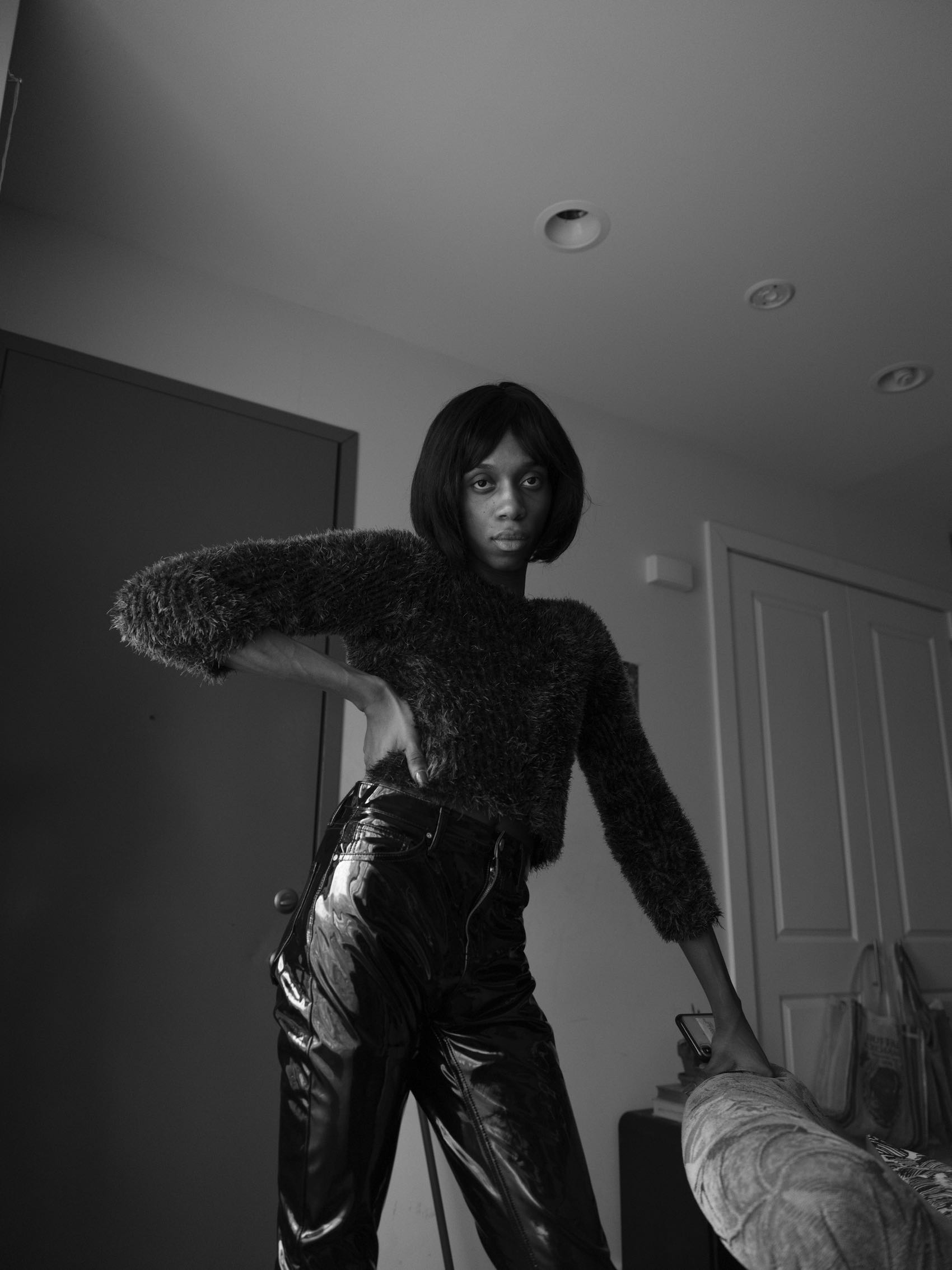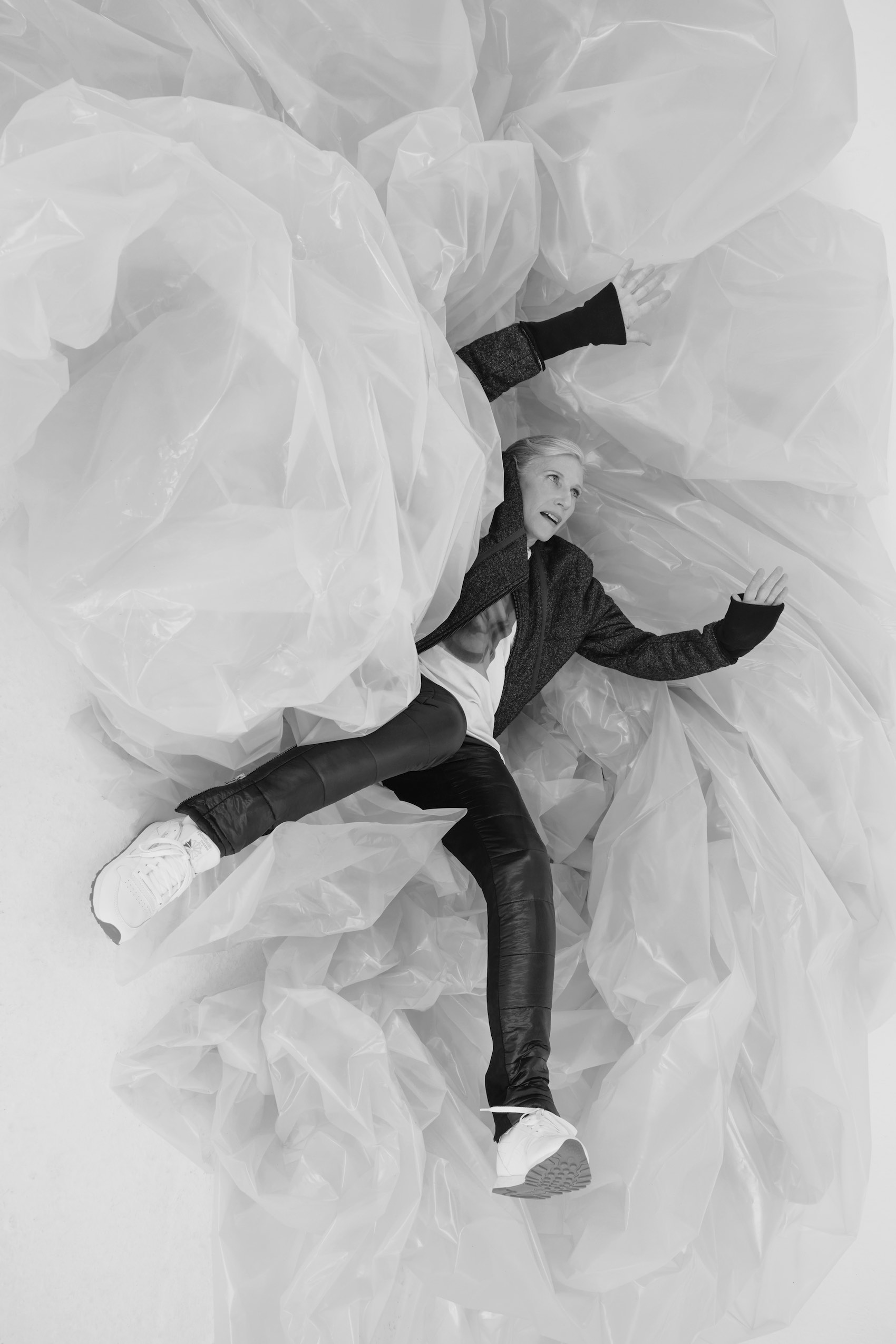Accomplishments speak for themselves, as the adage goes, but the less glamorous hardship of earning them can sometimes get overshadowed.
Last spring, Samantha Nutt, founder of nonprofits War Child USA and War Child Canada, sat down with actress Zosia Mamet and SUITED Editor-in-Chief Ashley Owens to discuss Nutt’s efforts in giving war-torn communities real, long-term aid. Early in their conversation, Owens remarks, “Something that I think a lot of people don’t really understand is how much of herself Samantha has put into War Child.” To that, Mamet, a War Child USA Ambassador, reached over from her seat to give Nutt’s shoulder a squeeze.
The moment is transient and tender and easy to miss. But it’s remarkably emblematic of the support system that exists between women who recognize the hard work that goes into success. Nutt’s 20-year career as a humanitarian, activist, writer, speaker, and educator spans her accomplishments as well as the adversity she has faced to keep them going.
After graduating from the University of London with a Master of Science in Public Health in 1995, Nutt was recruited by UNICEF to work in Somalia. She arrived bright-eyed and hopeful to a country ravaged by war and people suffering from famine that had already claimed the lives of 300,000. Their help had come too late; Nutt witnessed similar delayed cycles of aid in Burundi, Iraq, and Liberia. Real change, she came to realize, needed to be rooted in structure, so, in 1999, she founded War Child Canada, and in 2004, War Child USA.
Today, War Child has hundreds of staff members all over the world who are native to the war zones they work in, and they use their personal connection with their communities to help effect long-lasting change.
Zosia Mamet: How exactly did your work before War Child evolve into you starting this organization?
Samantha Nutt: I was always very interested in the relationship between health and human rights. My public health training taught me to look at how various things come together to create bad health outcomes. As a result, when I was recruited by UNICEF in my early twenties, I quickly understood just how useless I was in the face of the great humanitarian catastrophe that we were witnessing every day.
I can remember about two days after I arrived in Somalia, I was at a UNICEF supportive feeding clinic and I was interviewing women standing in line, asking them about their experiences and why they were seeking treatment, and I remember distinctly this one woman who was holding her infant. I had been speaking to her for about 20 minutes, and I decided to lean forward and try to put my finger in the palm of her baby’s hand. When I did that, I realized that her baby had already passed away from malnutrition and dehydration. Yet here was this young woman, still waiting to be seen, still hoping that something might be done for her child.
It occurred to me in that moment that you could have as many earnest young doctors in war zones around the world trying to help, but that in and of itself would never move the dial forward. We needed to be more consistently, meaningfully investing in those local communities and looking at these challenges not as short-term problems with short-term solutions—like food, water, shelter, blankets, that all matter to keep people alive—but you also need to disrupt that cycle and stop it from happening in the first place.
“For the longest time, the organization was a cell phone and a backpack and a volunteer staff of one—and you’re looking at her. Nothing breeds confidence quite like a woman with a backpack!”
Over time, and this is what we see as a result of War Child’s efforts, we’re reducing people’s dependency on aid, making them more self-reliant, and we’re having the kind of impact that allows women and children in particular to rebuild their lives and envision a different future. Often that includes earning an income for themselves, getting their kids into school, being able to do what we all want to do in life, which is to prosper. To have hopes and dreams. To not be plagued by violence and insecurity everyday. That, ultimately, is why War Child exists as an organization and it stemmed from those early experiences and frustrations—from witnessing the tremendous needs and knowing there had to be a better way forward. I’m sorry that was a very long answer. We’re probably only going to get to question number three on your list.
ZM: Can you talk about the beginning stages of creating the organization? Did being a woman play a part in that whatsoever?
SN: Yeah. I think when you start anything it’s really daunting. You don’t have the resources to achieve what you so passionately believe in. I didn’t come from money, so I couldn’t just pull a budget and a plan together and start hiring staff. For the longest time, the organization was a cell phone and a backpack and a volunteer staff of one—and you’re looking at her. Nothing breeds confidence quite like a young woman with a backpack! Especially back then—I’m small, so I looked about 14 years old.
It was hard. More people will tell you no because they might see that what you’re trying to do is a threat to them or to their more established organization, especially when you’re talking about the non-governmental sector, the humanitarian sector. We think of it as a sector that is principally altruistic, and there certainly is an aspect of that, but also with every new organization that gets added, people think there’s less to go around. Despite how clear the need was for War Child as an organization, it was very hard to convince people to support longer-term investments and impress upon them the value of working in very difficult humanitarian environments with ends that went beyond just keeping people alive. Organizations that receive the lion’s share of public donations have that “emergency” mandate. Preventing those “emergencies” in the first place is a longer, more complicated conversation. That has always been my biggest challenge in trying to grow War Child, and it is as true today as it was twenty years ago.
I think for me as a female, I mean, we’re dealing with parts of the world where even the idea of the rights of women and girls is seen as a cultural threat in some cases. At the same time, as a female doing this work, I’ve had extraordinary access to amazing and courageous women and girls who have shown me just how powerful women are, and how necessary their participation is in the process of building peace and creating communities that actually enable the next generation to thrive.
ZM: What would you say is the biggest risk that children and women face in the countries that you’re working in?
SN: Well, the countries that we’re working in—I mean, this is true in far too many corners of the world—violence and sexual violence are pervasive. In Eastern Congo, for example, we’re in communities where girls can’t go a mile or more to get to school because they will be raped. The parents will keep them home because the risk is too high, and they’re missing out on their education. So we worked with local communities and teachers to create at-home curriculum so the girls can actually keep up with their education and then sit their exams. Today, they’re matriculating at extraordinary rates, but two years ago, these girls were told, “You can no longer go to school because you will be raped.” It’s astonishing to me that this happens to such a degree and yet we rarely even, at least on our side of the world, pay attention to it. This degree of sexual violence is an ongoing challenge in every war-torn environment. I just got back from Iraq where I saw young girls and women who have fled ISIS, one of the most brutal and misogynistic regimes to have emerged in recent years, and these are girls who were held against their will, raped repeatedly, forced into marriages, sold in markets. Some of their own communities don’t even want them back now because they’re so stigmatized. They have so little opportunity, in many cases, to even rebuild their lives and get to a place where they feel personally secure. But it’s amazing when you can move the dialogue forward with consistent investments. It just requires persistence.
ZM: Throughout a 20-year career, I can only imagine the horrors you’ve witnessed. What inspires you to continue to do this work?
SN: There are certainly times when it’s been really hard, and there have been times when I have not wanted to do this work anymore—I was almost killed myself, in Eastern Congo a decade ago. I’ve lost far too many friends that are close to me as a result of war, particularly in Iraq. Landing in Iraq recently, I got off the plane, my head was spinning and I turned to one of my work colleagues at War Child and said, “Everybody I knew here is dead.” And it’s true. Everybody I knew who was fighting for peace in that country, between 2003 and 2008, has been killed. It’s a very heavy thing to contemplate.
“What people want more than anything else is for others to know what is happening to them—to bear witness, to engage, to not shut it out, and to find ways of helping.”
At the same time, you go back into those environments and you’re confronted by a whole new wave of activists and champions and humanitarians who get up every day and strive to make their communities better. And it’s my job to mobilize resources, to make that work possible, and that’s what really inspires me. It has always felt incredibly self-indulgent to sit around and say, “Well, I don’t know if I have the strength left in me anymore.” I’ve known those who are no longer around, who are no longer able to fight those battles, and for me, I feel very much like I’m honoring that legacy.
ZM: Why do you think it’s important as a woman to be spearheading this type of work—do you think, in a sense, that it’s your duty?
SN: Yeah, I think it is. In many of the environments in which we’re working, it’s a women’s rights issue. Standing with women in those environments, that is critically important. As a woman, I identify with the need for that strength in solidarity to take place. And it can be fun too! I’ve sort of emphasized the really negative things here, but I can’t even tell you how often women took me into their confidence and our time together ended in genuine expressions of joy and laughter. I mean, I remember my first experience in Somalia, I was doing some work with UNICEF around female genital mutilation. I ended up in this very remote area of Somalia with this wonderful Somali midwife, whose name was Miriam. She had pioneered this picture book, because most of the women we were speaking with together were illiterate, to show them what happens as a result of female genital mutilation and how women are dying in childbirth. So, we’re convened in this thatched hut and she’s showing them the picture book, and as we’re doing this, all these men start clustering around. You can hear them chatting away, relaying the conversation to one another, and they’re getting louder and louder. We could see that the women we were speaking to were withdrawing. They were just not even going to ask any questions anymore.
And then this wonderful midwife—she was about, I don’t know, 80 years old, and she had one tooth, a deeply wrinkled face—she yells something out, and the men start sprinting away from the hut as fast as humanly possible. All the women in the hut are killing themselves laughing. I have no idea what happened, so I asked Miriam. She told me, “She just yelled out, ‘Hey, all you men, we’re in here talking about vaginas, and if you want to come in here and talk about vaginas you are most welcome, otherwise get lost!'” I turned to her and said, “You know what? Even in my country, when women start talking about vaginas, the men disappear.” So it’s universal, right? Being a woman on the front lines, you see and experience these issues in a way that’s moving and personal, and you meet remarkable people in that process.
ZM: Do you feel like you’ve ever been underestimated in this field because of your gender?
SN: Absolutely. I think it’s not just my gender—my last name is Nutt. I often have a credibility problem. It’s also because I’m an aid worker, a humanitarian. There’s this sense that we’re somehow naive optimistic fools. I always find that to be extremely rich because we get up every day and we stare down the horrors of war. There’s nothing naive about that.
ZM: Is it important for children or young girls to know what’s happening in these places?
SN: Absolutely, and I think that we do those communities a tremendous disservice when we say things like, “Well, it’s just too hard. I can’t deal with it or read about it.” Imagine being in that environment and knowing that people in other parts of the world are opting out because they find it too emotionally overwhelming to even consider? It’s a tremendous hypocrisy. We owe it to those other women who are dealing with horrific abuse and violence to listen to their stories and to pay attention to what’s going on. And to help in any way that we can. That’s all that they ask, right? I mean, when I’m around the world in different environments, what people want more than anything else is for others to know what is happening to them—to bear witness, to engage, to not shut it out, and to find ways of helping.
ZM: You know, the work that you’re doing shouldn’t be so revolutionary, but it really is. You’re trying to empower them from the ground up. The fact that it’s considered a new idea should be shocking, but it isn’t.
SN: It should be shocking, and often it isn’t. When you have unequal relationships, there is always someone who is profiting from that inequality, and the ones who are profiting from that inequality are heavily invested in keeping that in place. For example, cheap labor in other parts of the world and sales of arms. Look at the mineral coltan, which is also called tantalum. It’s found in all of our cell phones and our computers and our video game consoles, and it’s mined principally from Eastern Congo. The way to get cheap minerals is to go into a highly unstable environment and buy it off of militia groups. In the case of Congo, it leads back to the same groups that prey on women and girls and that are implicated in the rape pandemic that has been present in Congo now for over a decade. We do benefit from that inequality and instability, unfortunately, and it should shock us. What I’m hoping is that as we galvanize ourselves, as women, we will go beyond what is happening within our borders.


